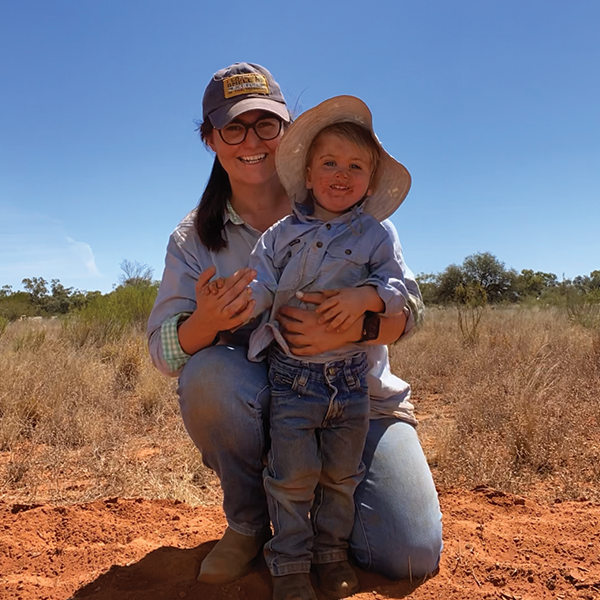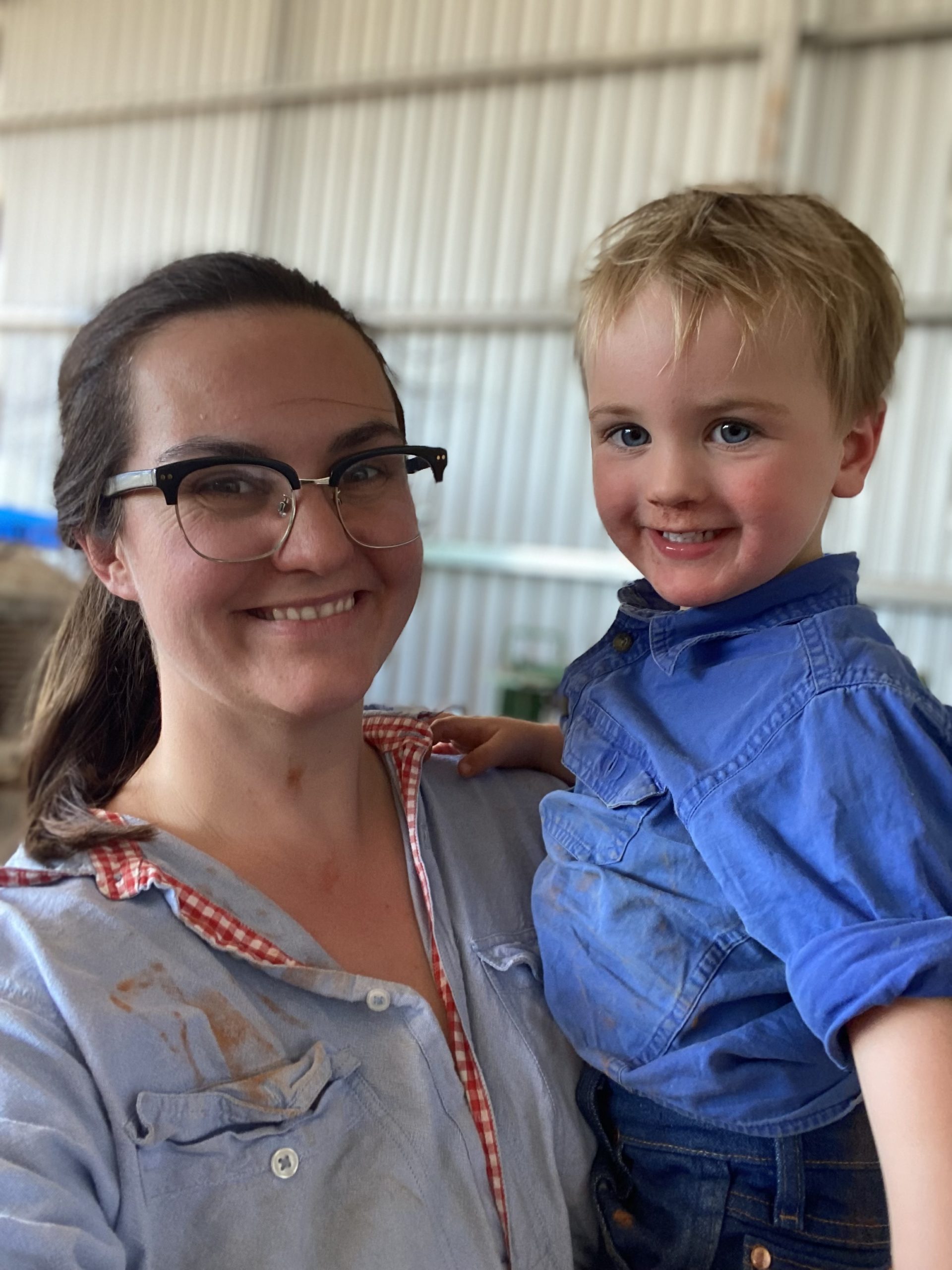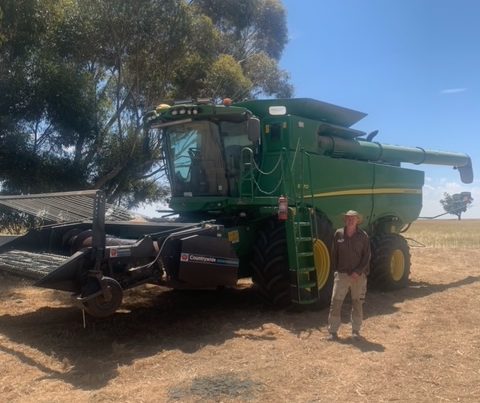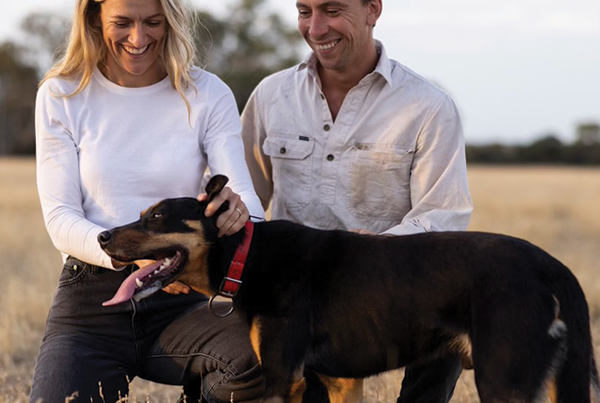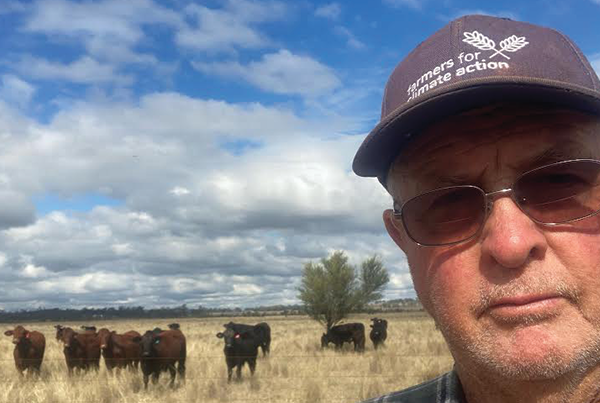At a glance
Who: Jessica and Thomas Murray, Trilby Pastoral
What: Merino sheep and Rangeland goats grazing for meat and fibre production, diversified industries Carbon farming and agri-tourism.
Where: Trilby Station, near Louth in Far Western NSW
Can you tell us about your property?
We are part of a multigenerational family-run property with Tom’s parents and brother. Focussing predominantly on grazing livestock for meat and fibre production from a self-replacing Merino flock and semi-managed Rangeland goats. There are additional carbon projects, and a farm stay tourism venture that Tom’s mum runs (and is usually what people will recognise first when they hear we’re from Trilby). I have come from a background in education, and am discovering where I have transferable skills and the many areas I have to learn to contribute to the property.
What first got you thinking about climate change?
Tom’s family have been pastoralists in the district for over 150 years, their passion and commitment to Western NSW Rangelands and the Merino sheep industry is a legacy I’ve married into. I’ve lived in the property for 7 years and in that short time have experienced the spectrum of extreme weather from unrelenting drought and dust storms to the recent floods that surrounded our home and cut us off for months. Its hard not to think about climate change when it is right there at your doorstep. And, since having our son our thoughts naturally turn to what future we are contributing to for him to carry on the family legacy if he wishes.
How has climate change impacted on your business?
We are responding to and preparing for extreme weather more and more often. It permeates into our short and long term decision making, and dictates priorities.
In contrast the opportunities for involvement in the carbon market, sustainable practices and renewable energy investment have had positive impacts on the business, its diversification and survivability.
In the diverse and complex industry of agriculture this is where I am finding my feet in our business, in understanding the research and development, extension and adoption initiatives that will ensure our business can be resilient to the changing climate.
What are some of the climate-smart strategies you’ve been employing and how successful have they been?
Livestock management practices are being adjusted to align the timing of joining, shearing and lambmarking with the seasonal conditions. This is a seemingly constant tweak as other producers have their own calendars that contractors need to work with and not a change we can make solely internally on farm.
Adjusting our Rangeland goat management practices from opportunistic to semi-managed as the breed is particularly well suited to our landscape and changing conditions.
Maintaining and replacing infrastructure for water and fencelines to manage stocking rates, and be able to adapt our grazing pressure in line with seasons and weather conditions. There is a lot of history and local knowledge in this space. Many practices my father-in-law does to look after the natural pastures are almost inherent to him from living and working in this landscape for so long. Going further back, his great-grandfather had a special interest in caretaking the native plants and animals of the region and he documented well that there is much to be learned from the traditional caretakers of the land, the Baakantji people. I find natural pasture management a really interesting climate-smart strategy as there is such a wealth of history and knowledge base to learn from.
Carbon farming has provided a diversified income that supports on-farm projects to respond to and prepare for drought. I see potential in this area for the data of our natural resource management to inform livestock management, improved overall production and sustainability metrics. I believe there will come a time when our carbon projects will be channeled towards neutralising our whole farm emissions, rather than generating income.
Do you use renewable energy on your farm? What are the benefits?
On a small scale we use solar bores. But I see a lot of potential in the application of more renewable energy on farm and at a larger scale. One local grazier has, in the past 4 years, invested in solar across his farm to reduce his whole farm electricity bill by 70% and generate an income from power going back into the grid. The barrier we face is being at the literal end of the power line for producing energy to go back into the grid – despite having ample space and resource.
If you could send a message about climate change to the Federal Government (in 50 words or less) what would it be?
Put simply – back your farmers. Australian Agriculture could be leading climate change action internationally. With climate-smart knowledge and government funded initiatives, farmers will lead the way to a better future.

